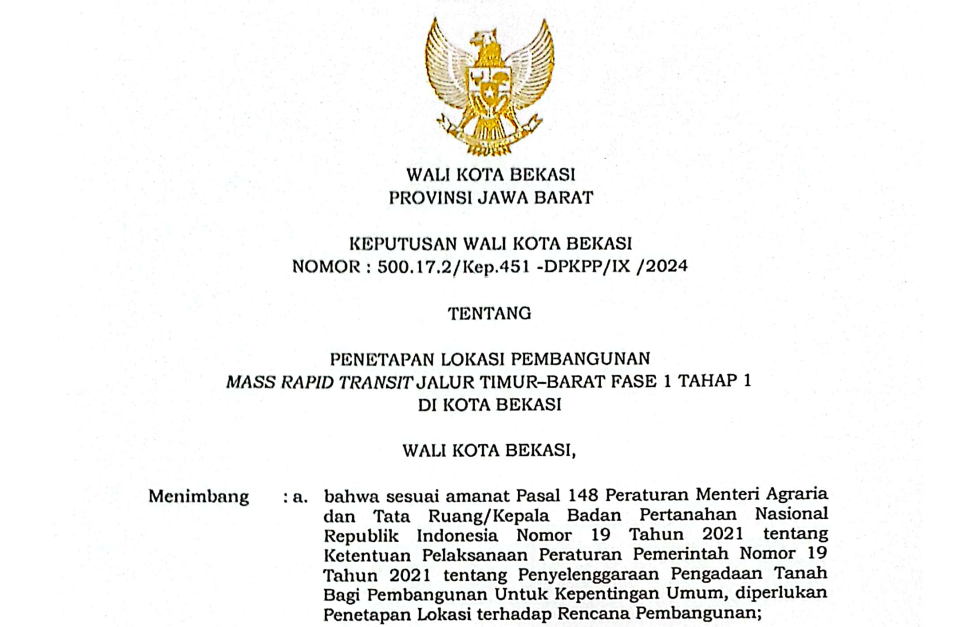History of Indonesian Railways and Commemoration of National Railway Day

National Railway Day is celebrated on September 28 every year to commemorate the patriotic actions of railway workers in taking over the Bandung Railway Hall from the hands of the colonialists.
Indonesia has a long history of national railways. The innovations being carried out by PT Kereta Api Indonesia at this time cannot be separated from the role of railway workers in taking over power of the railways which were under Japanese control.
This step also marked the birth of the Indonesian Repoeblik Railway Department (DKARI), which was later celebrated as National Railway Day.
History of the Establishment of DKARI and Commemoration of National Railway Day
In 1864, the Governor General of the Dutch East Indies, Sloet Van Beele, held a ceremony to build the first railroad connecting the cities of Semarang and Surakarta.
The first company to start a railway construction project was the Nederlands-Indische Spoorweden Maatschappij (NISM). After the success of the Semarang-Surakarta line, NISM then developed railway lines to various routes on the island of Java.
The success of NISM motivated the Dutch East Indies government to create its own company by establishing Staat Spoorwagen (SS) and building a railway line that stretched between Surabaya to Pasuruan with a track length of up to 63 kilometers.
Semarang Railway Station in 1867
Source: https://kids.grid.id/read/472529150/jadi-stasiun-kereta-api-pertama-di-indonesia-cepat-stasiun-samarang-yang-kini-have-mengbuang?page=all
After that, the construction of the railroad expanded to Sumatra and was built by the Deli Spoorweg Maatschapijj (DSM) Private Railway Company. As for West Sumatra, it can be said that since the construction of the railroad by the State Railway Company, namely Sumatra Staats Spoorwagen (SSS).
Initially, the presence of railway land transportation was intended to transport agricultural products, plantations and also mines. Railway lines were also used to bring coffee from inland areas to trading centers.
After the Dutch government was taken over by Japan, they then cut the railway line and then diverted it to build a railway line in Myanmar.
Furthermore, at the time of the proclamation of Indonesian independence, not all companies that were originally under Dutch rule could be taken over by Indonesia.
This made railway workers and workers' unions begin to voice the fate of the railway to the Minister of Transportation at that time.
The railroad workers who were members of the Railway Workers Union (SBKA) then launched an action to seize the authority to manage the trains from the hands of the colonialists. Their efforts also encouraged railway employees who are members of the Railway Motor Force (AMDA) to take the same action.
As reported by kompas.com, thousands of railway employees (KA) and young railway workers (AMKA) who at that time were working under Japanese authority occupied the Bandung Railway Hall and took over the power of the office from Japanese hands.
A month after Indonesia's independence, AMKA stated that since September 28 the Indonesian railways were officially under the authority of the government of the Republic of Indonesia. This event also marked the establishment of the Indonesian Repoeblik Railway Department (DKARI).
The name DKARI then changed to the State Railway Company (PNKA) in 1963. Then on September 15 1971 the name PNKA changed to the Railway Bureau Company (PJKA).
Then, on January 2 1991, the name PJKA was changed again to Public Railway Company (Perumka). In 1999 Perumka was changed to PT Kereta Api (KA) (Persero). And in 2010, the name PT KA was changed to PT Kereta Api Indonesia (KAI).
Now, every September 28 is always celebrated as National Railway Day. The commemoration is intended to commemorate the patriotic actions of railway workers in taking over power of the Indonesian railways from Japanese hands.
Article source:
Usman Mahendra. "History of Indonesian Railways and Commemoration of National Railway Day." kids.grid.id. Accessed September 19, 2023












Komentar
LOGIN FOR COMMENT Sign in with Google